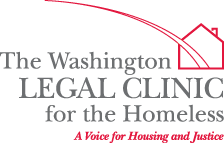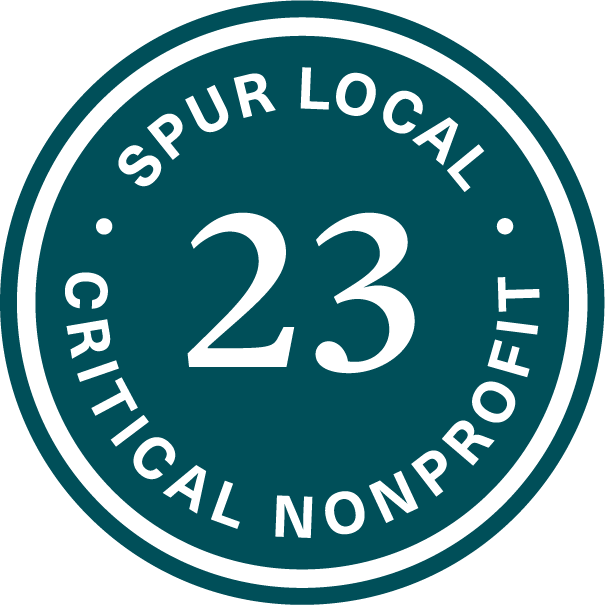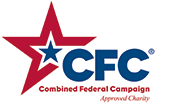2020 was a year of trauma and suffering for many who have lost loved ones, struggled with health, lost jobs or incomes, and/or struggled to pay for basic needs. That pain has not been felt equally by everyone though—it is neither race nor class blind. Ever since the early weeks of the global pandemic, Black residents of the District have been disproportionately harmed.
In 2021, there are reasons for hope. There are now multiple vaccines and an increased focus on production and accessibility. There are fresh sets of eyes on policies and solutions and new approaches from elected leaders, nationally and locally. DC is poised to receive a significant infusion of federal dollars. DC government, as a result of the passage of the Racial Equity Achieves Results (REACH) Amendment Act of 2020, is newly focused on racial equity and how to achieve it.
It is time to envision and pursue a path forward. We reject setting our goal posts at “back to normal” because too many people were suffering prior to the pandemic. We know that the death toll and harm of the pandemic could have been lessened if a well-threaded safety net had been in place. There is no better time than the present to reset those goal posts. Below are the Legal Clinic priorities we have been working on in 2021, which we will continue to advocate for along with the spending priorities of the Way Home Campaign and the Fair Budget Coalition. (The Legal Clinic is an active member of both coalitions.)
Because DC Residents Are Homeless Now…
Encampments where unhoused people live must not be cleared away.
The Bowser Administration continues to conduct full encampment clearings during the COVID-19 pandemic despite CDC guidance to suspend all encampment clearings. (“Clearing encampments can cause people to disperse throughout the community and break connections with service providers. This increases the potential for infectious disease spread.”) They claim that full clearings are necessary when there is an imminent risk to the health and safety of the residents and the community. However, we have witnessed numerous full clearings where there is no evidence of an imminent risk to health and safety. Instead, full clearings seem to occur as a result of complaints from housed neighbors.
Our Ask:
Immediately suspend all full encampment clearings now and after the pandemic. Instead, conduct trash-only clearings, provide additional trash cans at encampments, and maintain portable bathrooms and hand washing stations after the end of the pandemic.
Budget impact: DC could save money by ending clearings.
Unhoused people, especially those with health vulnerabilities, must have private space to protect their health.
Approximately 656 individuals experiencing homelessness have been medically determined to be at high risk of dying of COVID-19 and are on a waiting list for a safe placement in a hotel – in DC this program is called the Pandemic Emergency Program for Medically Vulnerable Individuals (PEP-V). (They are at greater risk of contracting and dying of COVID-19 because they live on the street or in a congregate shelter and are older or have serious medical conditions.) The federal government has announced it will pay 100% of costs through September. DC has announced plans to expand hotel placements to an additional 200 residents, which is a step in the correct direction, but does not meet the full and pressing need. (In addition, right now, DC is claiming that no law governs client rights in these programs, which means DC intends to terminate clients without due process.)
Our Ask:
Expand the PEP-V program to meet the needs of every high-risk individual. (You can take action here!) This can be done by purchasing or leasing hotels, including requiring hotels that get DC relief funds to lease their units for this purpose. Require PEP-V programs to comply with the HSRA, including critical due process protections. Use federal and local dollars to make progress on transforming DC shelters into non-congregate spaces.
Budget Impact: If additional people are served by hotels with federal dollars, there could be cost savings in the locally funded homeless services system.
DC’s shelter system for single adults must be high quality and transparent.
Most singles shelters are large, congregate spaces with poor conditions. Several of them are slated for redevelopment or replacement. Even newer shelters that have recently been renovated have major conditions problems, like the Patricia Handy Place for Women. We get frequent complaints about quality of services, disrespectful staff, and poor conditions.
Our Ask:
We need more transparency and oversight of proposed and planned development. Providers, District agencies and contractors need to be held accountable for quality services, maintaining shelters, and respecting client rights. In particular, we must look closely into shelter closures and redevelopments, including CCNV, 801 East and New York Ave.
Budget Impact: TBD
DC’s emergency shelter system for families must be low barrier.
The Department of Human Service (DHS) is intentionally operating a family shelter intake system that is high barrier, leaving many vulnerable families in unsafe settings, risking their health and lives. Intake workers regularly unlawfully deny eligibility to families, requiring extensive documentation of homelessness in violation of the Homeless Services Reform Act (HSRA) and refusing to provide lawful notices of ineligibility when denied services. Recent oversight responses from DHS indicate that over 90% of family shelter applications are denied.
Our Ask:
Amend the Homeless Services Reform Act to require a low barrier, humane family shelter eligibility process.
Budget Impact: N/A
Funding must be increased, and bureaucracy reduced for housing subsidies/vouchers.
There are 40,000 households on the DC Housing Authority waiting list and it has been closed since 2013. The vast majority of people experiencing homelessness need permanent assistance to maintain housing stability. There are also streamlining issues between agencies that need to be addressed so that participants do not continue to face the current prolonged wait times and inefficiencies of the lease-up process. Due to the pandemic and recent laws providing for more opportunities for release, there is an urgent need to fund housing for DC residents returning home from incarceration.
Our Ask:
Better oversight of both DHS and DC Housing Authority to reduce bureaucracy that can cause delays in renting units with vouchers. Drastically increase funding to permanent voucher programs and extend the Reentry Housing Pilot.
Budget Impact:
- $16.31 million for Permanent Supportive Housing for 432 families,
- $79.82 million for Permanent Supportive Housing for 2761 individuals,
- $23.34 million for Targeted Affordable Housing for 928 families,
- $17.33 million for 800 LRSP Tenant Vouchers
- $1.8 million for the second year of the Reentry Housing Pilot, providing housing and services for 50 returning citizens.
Fair standards for tenant applications must be established, and existing protections strengthened.
Even when affordability of housing is no longer a barrier, people often struggle to get housing because of exorbitant fees or irrational denials based on credit history, rental history (including eviction records), or criminal history.
Our Ask:
Establish fair standards for reviewing applicants for housing and strengthen existing protections. In particular, pass the Fair Tenant Screening Act, the Eviction Record Sealing Authority Act, and the Eviction Protections and Tenant Screening Amendment Act.
Budget Impact: Estimated $1 million to Office of Human Rights for enforcement.
Because DC residents are in Danger of Losing Their Housing…
Families must be spared the rapid re-housing cliff, and permanent subsidies must be funded.
Rapid Re-housing is a time-limited rental subsidy program. Families are regularly terminated at the end of an arbitrary time period even though they cannot afford the rent on their own, destabilizing families and causing eviction, homelessness, and other trauma. 2900 families are in this program right now. They have been allowed to remain during the public health emergency, but will face termination when the public health emergency ends.
Our Ask:
Extend all 2900 families in RRH through this fiscal year until there are enough permanent housing subsidies to support those who need it. Amend the HSRA to prohibit time limit terminations when families are unable to afford the rent on their own. Shift resources away from RRH into more permanent subsidies over time.
Budget Impact: Extend families in program through FY21 (amount TBD) and exit to permanent housing subsidies (see above).
People must not be forced to choose between vital utilities and housing.
The pandemic and associated economic recession have put tens of thousands of DC residents into economic crisis, unable to pay critical utilities or rent. The moratorium on evictions and utility shut offs has been key to preventing a serious humanitarian crisis. Now we need to plan for what happens when the public health emergency ends, and those moratoria are lifted.
Our Ask:
Keep both the eviction moratorium and the utility shut-off prohibition in effect until 1) after the public health emergency has ended and 2) residents can access sufficient funds to pay back rent and utility arrears to prevent massive displacement, trauma, and homelessness. Ensure programs are low barrier and that strong enforcement mechanisms are in place to ensure that landlords keep their promises.
Budget Impact: At least $100 million in rent and utility relief, depending on the need and how far the federal funding goes.
Because DC Must Preserve and Expand Truly Affordable Housing…
Any changes made to the Comprehensive Plan must further racial and housing equity.
The mayor’s proposed amendments to the Comprehensive Plan (Comp Plan) will not further racial equity, economic equity, or ensure the creation and preservation of low-income housing. Weakening the language to the Plan will make the more than 1500 page document irrelevant and meaningless. Increasing the allowed building density by right by “upFLUMing” (FLUM=Future Land Use Maps) will be detrimental to the communities we serve, will further displacement, and will prevent opportunities for community engagement that are currently afforded through the PUD process. The Comprehensive Plan has been a valuable asset for communities we represent, such as the Brookland Manor tenants who are currently fighting displacement from their community.
Our Ask:
Reject the Office of Planning’s amendments as they are currently written. Review and align with the DC Grassroots Planning Coalition’s Housing Justice Priorities to ensure any changes to the Plan will accomplish goals of racial and housing equity in practice, not just in rhetoric. Commit to viewing the Comprehensive Plan as the foundation of planning processes for other pieces of legislation, including those related to development, affordable housing production and preservation, environmental and transportation issues, etc.
Budget Impact: N/A
DC’s public housing must be protected and rehabilitated.
For decades, DC residents have complained about the deplorable conditions and dilapidated buildings in which they have been forced to reside. Due to years of disinvestment and neglect, these properties are in extreme disrepair. Currently, the DC Housing Authority is in the process of executing a large-scale public housing ‘transformation’ process that will demolish and/or renovate approximately eighteen properties. While the transformation plan is certainly about building restoration, it must fundamentally center the residents whose homes are within those buildings, now and in the future.
Our Ask:
Commit to a recurring $60 million for a minimum of ten years that will address the substantial preservation, rehabilitation, and redevelopment needs of DC’s public housing properties. Support the Public Housing Preservation and Tenant Protection Amendment Act of 2020 and include its language in the Budget Support Act (BSA) to memorialize DCHA’s stated commitment to its residents, ensuring that public housing residents can rightfully access the housing that is intended for them upon any property redevelopment or transformation.
Budget Impact: $45 million in FY22 to bring the total to $60 million for public housing repairs, and then commit $60 million annually.
The Housing Production Trust Fund and District Opportunity to Purchase Act must be made to work for deeply affordable housing.
DC continues to have an affordable housing crisis that threatens thousands of its residents. In particular, there is a dearth of deeply affordable housing in DC. The Housing Production Trust Fund (HPTF) is the fundamental source for creating and preserving affordable housing in DC. Despite this fact, deeply affordable housing for those at 0-30% AMI continues to be the most underproduced in DC. The Office of the D.C. Auditor extensively documented the failures of the Department of Housing and Community Development (DHCD) to meet the HPTF’s statutory requirements over the life of the HPTF. Most recently, in FY2020, despite an overall increase in the HPTF and a change requiring that fifty percent (50%) of the fund be used for 0-30% housing creation, only eighteen percent (18%) of the fund was used to create housing for that income level. In FY21, DHCD projects that a mere 27% of funds will be used for 0-30%.
In addition, there is a unique opportunity to meet purchase struggling hotels and use them immediately for non-congregate shelter and/or convert them to deeply affordable housing.
Our Ask:
Assert greater and more regular oversight over HPTF project selection, ensuring that the HPTF money is being allocated as intended and preventing the continued mismatch of requisite funding to 0-30% AMI housing creation. Consider building legislative guardrails around the funds dedicated to the lowest income levels so that those funds are not continually misdirected. Regularly fund the corresponding operating subsidies in order to fully utilize the 0-30% AMI allocation. Amend the District Opportunity to Purchase Act (DOPA) to provide DC with the first right of refusal for the purchase of hotels and commit to converting hotels to non-congregate shelter and/or deeply affordable housing.
Budget Impact:
- Maintain minimum of $52 million for 0-30% AMI housing in HPTF, and match $5 million in operating subsidy (through LRSP)
- Invest additional money (TBD, but likely federal and local) in purchasing hotels and converting to non-congregate shelter and/or deeply affordable housing.





